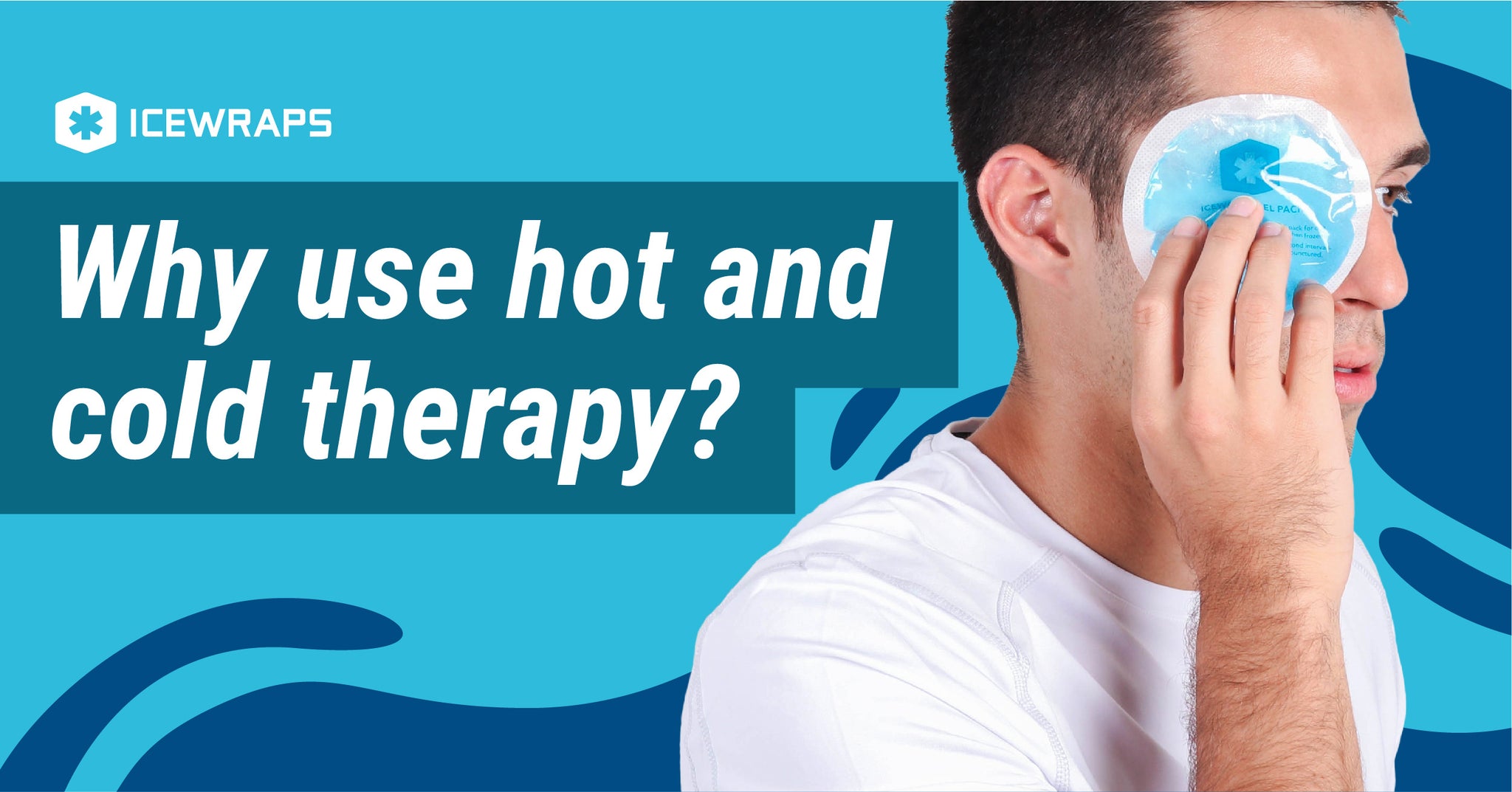Your Cart is Empty

It’s every doctor’s order to ice an injury immediately for first aid. It’s also common knowledge that when you pull a muscle, a heating pad should do the trick. But have you ever wondered why they work the way they do?
In this article, we will look into why and how cold therapy and hot therapy work. Clearly, we’re big believers of these time-tested pain relief methods so we’ve got a lot to share.
Let’s dive right in, shall we?
Let’s start with the basics. When you get injured, your immune system immediately gets alerted and deploys healing bodies like plasma protein and white blood cells. Blood flow rushes to the injured area to commence healing, which explains why it swells up.
Inflammation is a sign that your body is doing its job so it shouldn’t be a problem. However, inflammation likes to bring along an uninvited guest to the party - pain.
In this case, your best bet is to support yourself with cold therapy. Applying the cold temperature to the affected area constricts blood vessels, slows down blood flow, and reduces inflammation and pain.Cold therapy comes in many shapes and sizes. You can use a bag of frozen peas, a coolant spray, or a high quality ice pack.
What about hot therapy?
Hot therapy is amazing for stiff muscles. When you pull a muscle or strain them, you will feel some stiffness and a limited range of motion. This is because your blood circulation can get constricted because of the damage your muscle has received.
This is when you use a heating pad or a warm gel pack. Hot therapy works by triggering vasodilation (opening the walls of your blood vessel) to promote your blood circulation, bringing back your range of motion and healing your damaged muscle.
As you can see, heat and ice do two very different things.
Cold = constricts blood vessels, slows down blood flow
Heat = dilates blood vessels, promotes circulation
Using cold therapy to an already stiff and constricted muscle will only make it worse in the same way that using hot therapy to an already inflamed area will not do you any good.
In some cases, like when your injuries heal, your body will need both hot and cold therapy.
Pro Tip: Use cold therapy immediately within the first 24-36 hours of an injury to take care of the pain and inflammation. Use hot therapy as your injuries move past the inflammation stage to promote healing. Heat therapy is also best for chronic pain and for tight muscles (menstrual cramps, stomach pains, etc.)
Applying for too long
Applying hot or cold therapy for too long puts you at risk for frostbite and burns on the skin. Please remember that the recommended time for icing is 20 minutes.
Make sure that your skin has come back to its normal temperature before reapplying. The recommended time in between applications is 2 hours.
Applying ice on bare skin
Always use a soft fabric when using a cold or hot pack to prevent frostbite and burns.
Applying on broken skin
An open and unhealed wound or blistered skin can make your injuries worse. Do not apply a cold or hot pack on broken skin.
Despite its fancy name, hot and cold therapy are convenient, inexpensive, and time-tested pain relief methods.
It’s wise to stock up on high quality ice packs and a heating pad for when you need it. (And trust us, youwill.)
 |
 |
|
ICEWRAPS 4” Round Reusable Gel Ice Packs with Cloth Backing
|
ICEWRAPS 5”x7” Reusable Gel Ice Packs |
Comments will be approved before showing up.